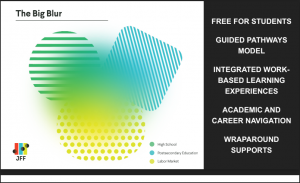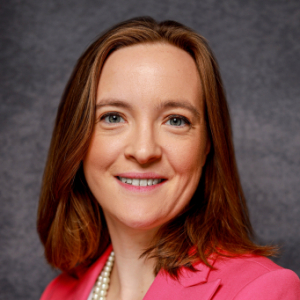 “Go forth without limits!” was an apt parting chat message as over 70 state Career Technical Education (CTE) leaders from across 16 states convened virtually last month to launch the community of practice for Advancing CTE Without Limits, a cross-state implementation initiative that provides a dedicated space to foster collaboration and problem solving to advance vision principles.
“Go forth without limits!” was an apt parting chat message as over 70 state Career Technical Education (CTE) leaders from across 16 states convened virtually last month to launch the community of practice for Advancing CTE Without Limits, a cross-state implementation initiative that provides a dedicated space to foster collaboration and problem solving to advance vision principles.
Without Limits: A Shared Vision for the Future of Career Technical Education (CTE Without Limits) was developed with the input of nearly 200 contributors representing national, state and local CTE leaders and stakeholders and anchored in the belief that each learner must have access to and the means and succeed in the career of their choice, with CTE serving as the catalyst for that journey. Since its release a year ago this month, Advance CTE has conducted a robust awareness campaign that has gained the support of over 40 national partners, and is now transitioning to meaningful state assessment and implementation work.
The kickoff served as an initial networking session for states and an inspirational launch point to prepare for the work ahead. Attendees had the pleasure of the hearing from JFF Vice President Joel Vargas, who shared how JFF is advancing the vision through its recent research and report The Big Blur: An Argument for Erasing the Boundaries Between High School, College, and Careers —and Creating One New System That Works for Everyone.
Vargas highlighted promising first steps in Idaho (Financing Students Directly), Tennessee (Ready Graduate Indicator), Texas (P-TECH and and Early College High Schools) and Washington (Mandatory Acceleration) that are blurring the lines among secondary, postsecondary and career preparation systems.
 Vargas challenged attendees to dream big and be the new models for scalable solutions by being a “network facilitator,” by combining career pathway expansion with intentional investments in collaboration and sustained partnerships. He connected the vision to a world where policymakers “boldly reimagine public responsibility” where providing two years of higher education and training for careers is seen as a public responsibility that is not just affordable or free, but structured to provide full support for each learner on their career journey.
Vargas challenged attendees to dream big and be the new models for scalable solutions by being a “network facilitator,” by combining career pathway expansion with intentional investments in collaboration and sustained partnerships. He connected the vision to a world where policymakers “boldly reimagine public responsibility” where providing two years of higher education and training for careers is seen as a public responsibility that is not just affordable or free, but structured to provide full support for each learner on their career journey.
“Partners have to focus not just on the technical work, but also on building relationships and trust. Systems change is also people change.” – Joel Vargas, Vice President of Programs, JFF
Following the keynote, leaders participated in two breakout sessions within and across states to identify promising first steps and common challenges to realizing the action areas of Principle 1: Each Learner Engages in a Cohesive, Flexible and Responsive Career Preparation Ecosystem. States raised common challenges of designing and securing funding models that prioritize collaboration and learner-centered policies and sharing learner-specific data among state agencies and education institutions. However, they also shared initiatives that could be meaningful first steps towards systems change, including partnerships to improve connections to postsecondary career pathways for learners with disabilities; combining CTE and counseling in one department, and statewide articulation and transfer agreements to fully count all learning.
Participating states will be engaged in bimonthly cross-state calls to share challenges and solutions aligned to the five vision principles. Three states, Colorado, Nebraska and South Carolina, applied for and were selected to participate in a state cohort and will receive additional resources including funding, individualized coaching and intensive technical support.
Sixteen states are participating in the CTE Without Limits Community of Practice: Arizona, Colorado, Illinois, Kansas, Kentucky, Maine, Massachusetts, Missouri, Montana, Nebraska, North Dakota, Ohio, South Carolina, Texas, Wisconsin, and Wyoming. The community of practice is still open for additional state participation – state staff can email Senior Policy Associate Dan Hinderliter for additional information.
Advance CTE’s vision page offers a variety of awareness and implementation resources, including its step-by-step assessment and action planning guide, Pushing the Limits: A Roadmap for Advancing CTE Without Limits that will be the basis for Advance CTE’s state cohort work.
CTE leaders are also encouraged to participate in activities to commemorate the first anniversary of CTE Without Limits, including a Twitter chat on March 8 at 1:00 p.m. E.T on Advance CTE’s Twitter page, and webinars aligned to the vision principles throughout the spring.
Stacy Whitehouse, Senior Associate Communications and State Engagement

